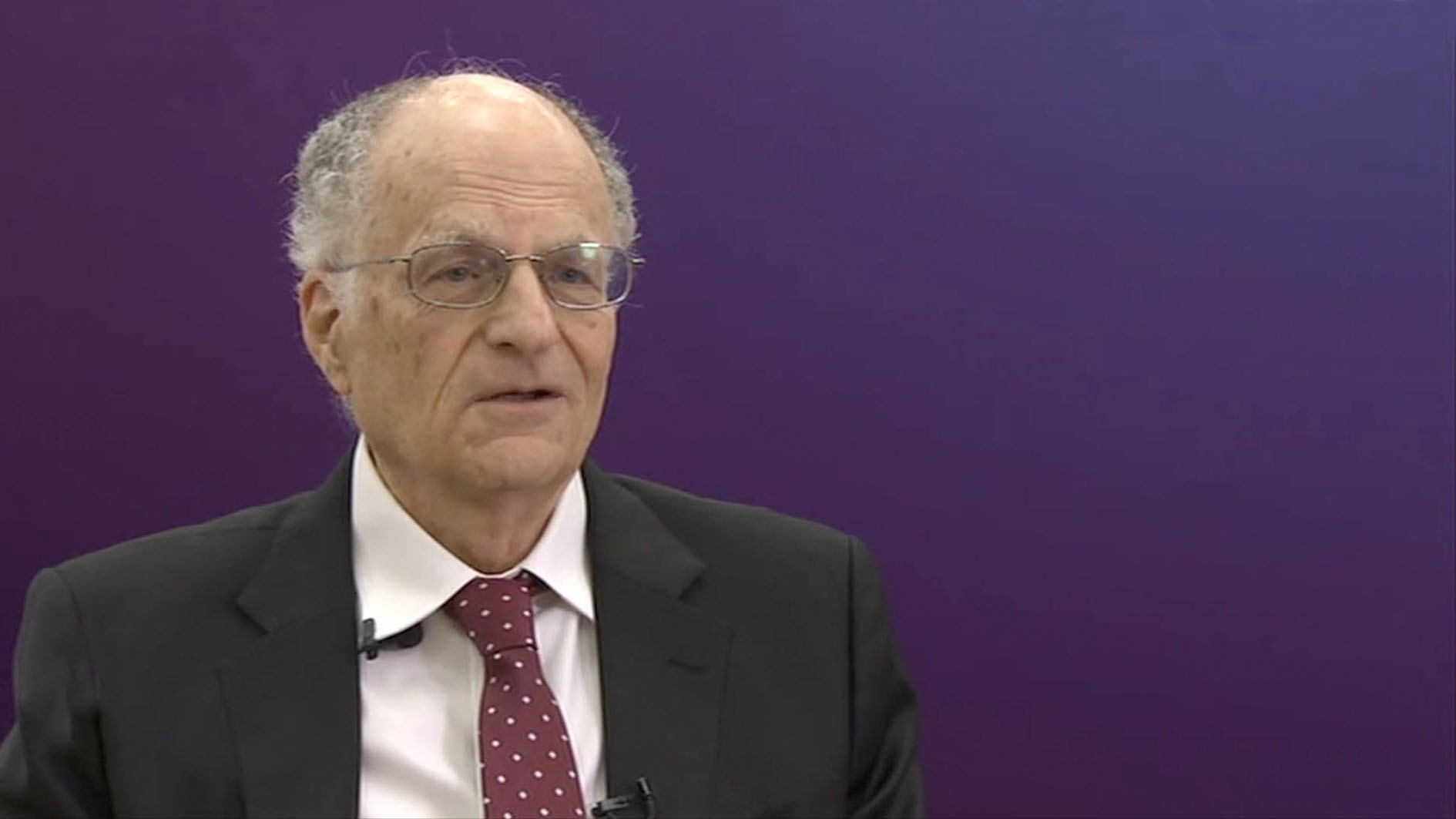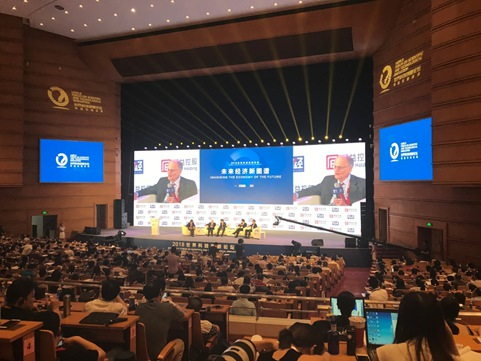
Business
22:05, 12-Aug-2018
Nobel laureates favor free trade and collaboration
Updated
21:20, 15-Aug-2018
CGTN's Zhao Kunlun and Zhao Yunfei
01:34

Several Nobel Prize laureates in economics and basic sciences gathered in Beijing to share their views on escalating trade tensions and scientific and technological improvement.
Thomas Sargent, the 2011 Nobel Prize winner in economics, says he doesn’t expect a trade war. Since WWII, the United States has threatened other countries with tariffs, each time with a specific purpose. They have always been used as bargaining tools by the US government to gain more access to other countries’ domestic markets. But the process of a trade war is painful, and may lead to the restriction of division of labor and market expansions.
“If the US puts tariffs on Europe and China,” he says, “the country to hurt most is the United States, because China and Europe can trade with each other.”
Sargent praised China’s opening-up policy, saying Trump should be committed to negotiation in a respectful way.

Thomas Sargent, attending the 2018 World Forum on Scientific and Technological Innovation, says most Americans thirst for free trade. /CGTN Photo
Thomas Sargent, attending the 2018 World Forum on Scientific and Technological Innovation, says most Americans thirst for free trade. /CGTN Photo
Under the rising tide of protectionism and unilateralism in the US, even scientists are vowing for international cooperation.
Arthur McDonald, the 2015 Nobel Prize winner in physics, thinks that it is essential for international collaboration in studies of space and particle physics since having opportunities for countries to work together is fundamental to success in these fields.
He mentioned an underground dark matter laboratory near Yalongjiang in southwest China’s Sichuan Province. To him, this lab represents good international collaboration between China and Canada. This type of cooperation is definitely critical to innovation and entrepreneurship.
When asked about the trade war’s influence on scientific improvements, Prof. Sargent says that China is now producing more scientists, PhD graduates and high-level scientists than the US, and scientists in other parts of the world are well aware of that. They want to collaborate with Chinese scientists. In space science, China has some world-famous scientists, sometimes they are both scientists and entrepreneurs and they are doing exciting things. He also thinks scientists like to collaborate.
“They are not political, they just want to solve problems, and they like working together. I think scientists are big forces for joining across the world. If you charge twice as much as tariffs to work together, we still want to work together.”
Basic sciences are the basis for the technological innovation which is changing the nature of production in the economy of the future. In the long-run, technological innovations thrive under an international environment that has an open mindset. Unipolar policy, on the other hand, may jeopardize scientific improvements.

SITEMAP
Copyright © 2018 CGTN. Beijing ICP prepared NO.16065310-3
Copyright © 2018 CGTN. Beijing ICP prepared NO.16065310-3